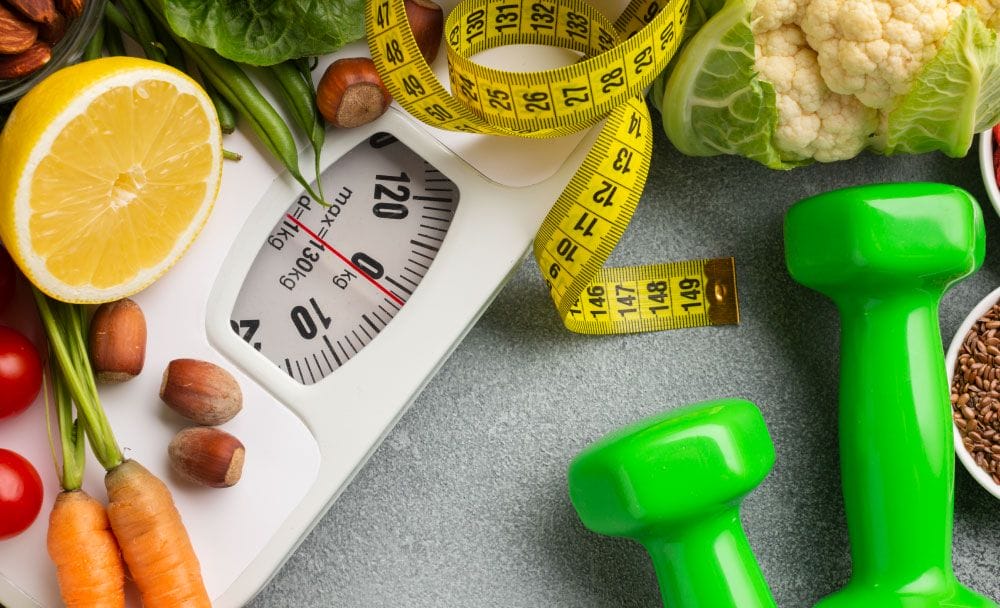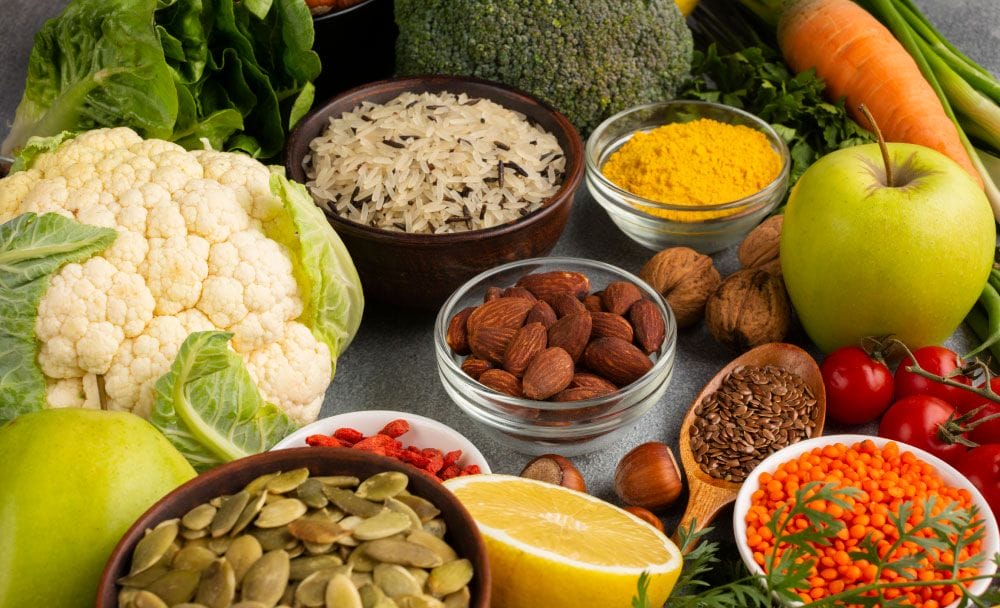“न स्त्रीरत्नसमं रत्नम्।
na strīratnasamaṃ ratnam।
There is no jewel like a woman”
Polycystic Ovary Syndrome (PCOS) is a hormonal disorder that affects women of reproductive age. According to Ayurveda, PCOS causes hormonal imbalances that can result in various symptoms, including weight gain, insulin resistance, and irregular menstrual cycles. Ayurveda’s approach suggests that a healthy diet and lifestyle changes can help manage PCOS symptoms, including weight gain. In this article, we will explore the best PCOS diet to lose weight, including helpful tips and strategies suggested in Ayurvedic practices.
Understanding PCOS and Weight Gain
PCOS can cause weight gain due to several factors. As per Ayurveda, one of the primary causes is insulin resistance. Insulin is a hormone that regulates blood sugar levels. In women with PCOS, the body may become resistant to insulin, which leads to high blood sugar levels and increased fat storage. Insulin resistance can make it difficult to lose weight and increase the risk of developing type 2 diabetes.
Another factor that contributes to weight gain in women with PCOS is high levels of androgen hormones, such as testosterone. These hormones can lead to increased muscle mass and decreased fat metabolism, resulting in weight gain.
Best PCOS Diet to Lose Weight
The best PCOS diet to lose weight according to Ayurveda is a well-balanced, low glycemic index (GI) diet that is rich in whole foods, fiber, and lean protein. A low GI diet helps regulate blood sugar levels and insulin resistance, making it an effective way to manage PCOS symptoms and lose weight. Here are some Ayurvedic tips to follow when creating your PCOS diet plan:
1. Focus on Whole Foods
Aim to eat a diet that is rich in whole, unprocessed foods such as fruits, vegetables, whole grains, and lean protein. Whole foods are nutrient-dense and can help you feel full for longer periods, reducing the temptation to snack on unhealthy foods. Avoid processed foods and added sugars, as they can cause blood sugar spikes and promote insulin resistance.
2. Choose Low-GI (Glycemic Index) Carbohydrates
Low GI carbohydrates are slowly digested, causing a gradual rise in blood sugar levels. They include foods such as sweet potatoes, whole-grain bread, and legumes. Low GI carbohydrates can help reduce insulin resistance and promote weight loss.
3. Include Lean Protein
Protein is an essential macronutrient that helps you feel full and satisfied. Lean protein sources, such as chicken, turkey, fish, and tofu, are ideal for women with PCOS. They provide the necessary amino acids for muscle growth and repair without the added fat and calories found in red meats.
4. Increase Fibre Intake
Fibre is essential for maintaining healthy digestion and regulating blood sugar levels. Aim for a minimum of 25 grams of fiber per day, which can be achieved by eating plenty of fruits, vegetables, and whole grains.
5. Limit Dairy Products
Some women with PCOS may be sensitive to dairy products due to their high lactose content. Dairy products can also be high in fat and calories, making it difficult to lose weight. Instead, try low-fat or non-dairy alternatives, such as almond milk or soy milk.
6. Stay Hydrated
Drinking plenty of water is essential for maintaining overall health and promoting weight loss. Aim for at least eight glasses of water per day, and avoid sugary drinks such as soda and juice.
Other Strategies to Manage PCOS and Lose Weight
In addition to following a healthy diet, several lifestyle changes can help manage PCOS symptoms and promote weight loss. These include:
1. Exercise Regularly
Regular exercise can help regulate insulin resistance and promote weight loss. Aim for at least 30 minutes of moderate-intensity exercise, such as brisk walking or cycling, on most days of the week.
2. Manage Stress
Stress can worsen PCOS symptoms and make it difficult to lose weight. Managing stress through relaxation techniques such as yoga, meditation, or deep breathing can help reduce cortisol levels and promote weight loss.
3. Get Enough Sleep
Getting adequate sleep is crucial for managing PCOS symptoms and promoting weight loss. Aim for at least seven to eight hours of sleep per night to help regulate hormone levels and reduce cravings for unhealthy foods.
Consider Medical Treatment
If you are struggling to manage PCOS symptoms or lose weight through diet and lifestyle changes, consider speaking with your doctor about medical treatments. Certain medications can help regulate blood sugar levels and promote weight loss in women with PCOS.
Importance of Diet in PCOS
A diet rich in a variety of low-glycemic fruits and vegetables—such as broccoli, cabbage, cauliflower, artichokes, and bean sprouts—and low in starch is beneficial for those with PCOS. Hence, Ayurveda suggests that women with PCOS change their diet to lose weight and decrease their levels of insulin, free testosterone, glucose, and fat.
In addition, it is important to include light exercise and plenty of water. These will support the weight loss journey, which is challenging for PCOS-affected ladies.
Sample Diet Plan for PCOS
Breakfast:
1 cup cooked steel-cut oats with chopped nuts and berries
1 boiled egg or 1 cup plain yogurt with raw vegetables
1 cup green tea or black coffee
Mid-Morning Snack:
1 medium-sized apple with 1 tbsp almond butter
Lunch:
1 cup mixed vegetable salad with 1 tbsp olive oil and lemon dressing
1 cup cooked brown rice or quinoa
1 small bowl of dal (lentils)
Afternoon Snack:
1 small bowl of roasted chana (chickpeas) or makhana (fox nuts)
Dinner:
1 cup vegetable soup
1 small bowl of mixed vegetable stir-fry with tofu or paneer (cottage cheese)
1 cup cooked millet or whole wheat roti
1 cup buttermilk or coconut water
Before Bed:
1 small bowl of mixed nuts
Foods to Avoid in PCOS
- Refined Carbohydrates and Sugar
Blood sugar levels can jump quickly when refined carbs are consumed, such as white bread, spaghetti, and sugary snacks. These variations could interfere with insulin action, which is directly related to PCOS symptoms. Choose whole grains such as oats, brown rice, and quinoa since they help control blood sugar levels and deliver energy gradually.
2. Processed Foods and Trans Fats
Trans fats found in processed meals can aggravate PCOS symptoms by causing inflammation and insulin resistance. Fried foods, quick meals, and packaged snacks should be avoided. Rather, concentrate on including foods high in healthy fats, such as almonds, avocados, and olive oil, in your diet.
3. High Glycemic Index Foods
High-glycemic foods, such as watermelon and potatoes, can cause sharp spikes in blood sugar levels. In women with PCOS, this may exacerbate hormone abnormalities and insulin resistance. Pick food with low-GI options, such as berries and sweet potatoes, to help keep blood sugar levels more constant.
4. Caffeine and Caffeinated Beverages
Caffeine may impact the synthesis of hormones and raise cortisol levels, which may worsen symptoms of PCOS. Cut back on coffee, energy drinks, and other caffeinated drinks. Decaffeinated or herbal teas can make better substitutes.
Lifestyle Changes to Treat PCOS
There are 2 major lifestyle changes you can adopt to help with PCOS symptoms.
- Dietary changes: A low-GI, well-balanced diet high in fibre, lean protein, and whole foods is the best way to lose weight with PCOS. A low GI diet is a useful strategy for managing PCOS symptoms and weight loss since it lowers insulin resistance and blood sugar levels.
2. Physical Exercise: Frequent exercise can support weight loss by regulating insulin resistance. On most days of the week, try to get in at least 30 minutes of moderate-intensity activity, like brisk walking or cycling. Yoga, Pilates, and tai chi are examples of mind-body workouts that might help you burn calories and lower stress levels, both of which can help to ease PCOS symptoms.
Conclusion
In summary, a well-balanced, low GI diet rich in whole foods, lean protein, and fibre is the best PCOS diet to lose weight. By following a healthy diet and lifestyle changes such as exercise, stress management, and adequate sleep, women with PCOS can manage their symptoms and promote weight loss. If you are struggling to manage your symptoms, speak with your doctor about medical treatments that may be helpful. With the right diet and lifestyle changes, women with PCOS can achieve optimal health and well-being.
Disclaimer: This article is from a health and wellness perspective only and does not constitute medical advice. Kindly seek the help of a trained medical practitioner before initiating any treatment.
FAQs
1. Can a PCOS diet help with fertility?
Yes, a healthy PCOS diet can help regulate menstrual cycles and improve fertility. In some cases, weight loss through diet and exercise may be enough to restore ovulation and improve fertility.
2. Is it possible to manage PCOS without medication?
In some cases, lifestyle changes such as diet and exercise may be enough to manage PCOS symptoms without medication. However, women with PCOS should work closely with their healthcare provider to develop an individualized treatment plan that meets their specific needs.
3. What are some healthy PCOS-friendly snack options?
Healthy PCOS-friendly snack options include nuts, seeds, fresh fruit, and vegetables with peanut butter. Boiled Channa also makes for a healthy snack between meals.
4. Can supplements help manage PCOS symptoms?
Some supplements, such as inositol and omega-3 fatty acids, may help manage PCOS symptoms. However, it is important to consult with a healthcare provider before starting any supplements to ensure their safety and effectiveness.
5. Can a PCOS diet help with acne?
A healthy PCOS diet that is low in sugar and processed foods may help reduce acne symptoms in some women with PCOS.
References:
- Obesity and polycystic ovary syndrome – Barber – 2021 – Clinical Endocrinology – Wiley Online Library
- PCOS: A Weight-Inclusive and Practical Approach to Lifestyle Interventions
- The effect of low glycemic index diet on the reproductive and clinical profile in women with polycystic ovarian syndrome: A systematic review and meta-analysis
- Polycystic Ovary Syndrome (PCOS) and Other Androgen Excess–Related Conditions: Can Changes in Dietary Intake Make a Difference?
- Adherence to the Mediterranean Diet, Dietary Patterns and Body Composition in Women with Polycystic Ovary Syndrome (PCOS)
- Low Starch/Low Dairy Diet Results in Successful Treatment of Obesity and Co-Morbidities Linked to Polycystic Ovary Syndrome (PCOS) – PMC
- The Effect of Exercise in PCOS Women Who Exercise Regularly – PMC
- The role of stress in PCOS
- Pathogenesis and Consequences of Disordered Sleep in PCOS
- https://pubmed.ncbi.nlm.nih.gov/36944117/


















